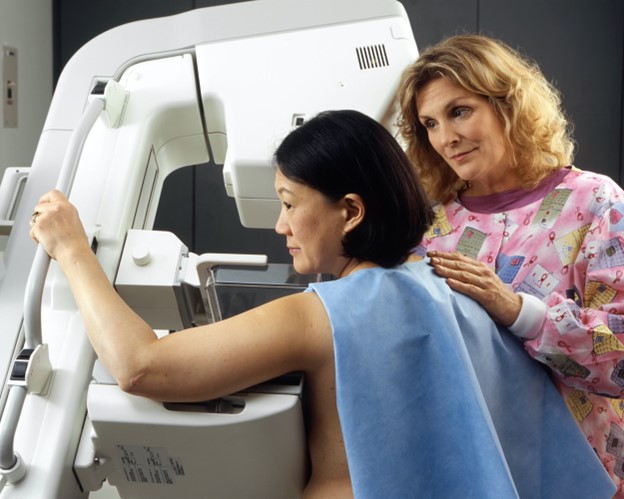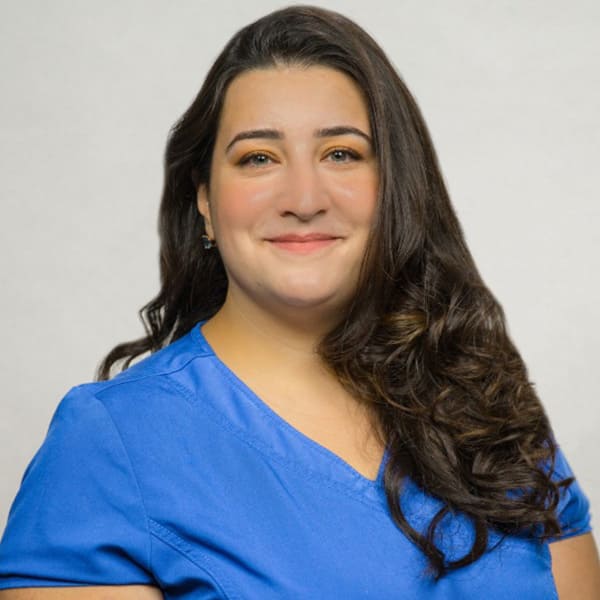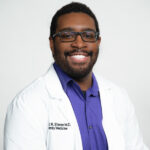Empowering Your Health: The Importance of Proactive Breast Cancer Screening
According to the CDC, approximately 240,000 women and 2,100 men are diagnosed with breast cancer annually. [1] Unfortunately, breast cancer is a high-risk cancer, especially when diagnosed late. It is the most common non-skin cancer and the second deadliest cancer in women. [2] However, there is a solution that can significantly reduce your mortality risk – proactive breast cancer screenings for early detection.
Becoming educated about breast cancer and making positive lifestyle choices is also essential. Here’s what you need to know.
Breast Cancer – The Facts
Given that one in eight American women will be diagnosed with breast cancer in her lifetime, chances are, you know someone affected by this cancer. While these statistics may seem overwhelming, early detection offers hope. When breast cancer is caught in its earliest stages, the five-year survival rate is 99%. Thanks to advancing treatment and early detection methods, such as breast cancer screening, there are currently over 3.8 million breast cancer survivors nationwide.
Here are some quick facts:
- Breast cancer develops when cancer cells form in breast tissue – and there are different types of breast cancer.
- Cancer is assigned a stage at the time of detection to determine the extent of the case. There are five stages, and approximately 64% of women are diagnosed at the localized stage before cancer spreads outside the breast. At this point, breast cancer is easier to treat. Once cancer spreads to other body parts, the five-year survival rate drops to 30%.
- The average age of diagnosis is 62 years old. However, age is not the only risk factor. Besides genetic factors, avoidable environmental risk factors include a poor diet, a sedentary lifestyle, frequent alcohol consumption, and combined hormone replacement therapy. [3]
A Closer Look at Breast Cancer Screening
“Screening” means looking for a disease, like breast cancer, before symptoms develop. The ultimate goal of this process is to detect cancer early and increase the chances of survival. For breast cancer, mammography screening is recommended as women age – if you are between 50 and 74 years old (and at average risk for breast cancer), it is advisable to get a mammogram every two years. However, women with a strong personal or family history of cancer or other risk factors may be screened at a younger age and more frequently. In these cases, genetic or MRI testing may be used. [5]
If you are preparing for a mammogram, here is what you should know:
- A mammogram is essentially a picture of the inside of your breast. This screening method helps find tumors that are too small to feel and ductal carcinoma in situ (DCIS) – abnormal cells that line the ducts of the breast. For some, this non-invasive breast cancer turns into invasive cancer if left untreated.
- There are several types of mammograms. However, digital breast tomosynthesis (DBT) was approved by the FDA in 2018 and is now used in three out of four facilities. Instead of an X-ray picture (film mammography), it is a computer picture.
- If you have had a mammogram at another facility, try to obtain those records for comparison.
- Remember, only around two to four mammograms in 1,000 lead to a breast cancer diagnosis. [6]
Related: 3 Reasons Why Women Should Consider Annual Wellness Exams
Take Proactive Steps to Prevent Breast Cancer
Prevention is the best medicine, so in addition to regular screenings, consider the following:
- Watch your weight – Women who are overweight or obese have a higher risk of breast cancer than women who maintain a healthy weight. This risk becomes even higher after menopause. Fat cells produce estrogen, which can cause hormone-receptor-positive breast cancers to develop and grow. [7]
- Be active – Regular exercise can help you maintain a healthy weight and reduce your risk of many illnesses. Women who exercise for 30 minutes daily have a lower risk of breast cancer. [8]
- Eat a balanced diet – Consume a diet rich in fruits and vegetables while limiting meat and fat. Also, reduce your alcohol intake. Zero alcohol is best; even light drinkers have a 1.04-fold higher risk than non-drinkers. [9]
- Don’t smoke – Smoking is known to cause many types of cancer, including breast cancer. Secondhand smoke is also a lung and breast cancer risk factor, especially in women. Regardless of how long you have smoked, it is never too late to quit. Each day you no longer smoke is a day your body can heal, protecting your heart and improving overall health.
- Conduct self-exams – Self-exams combine physical and visual examinations of the breasts to check for signs of breast cancer, such as new lumps, thickenings, or other breast changes. The goal of self-exams is to know how your breasts normally look and feel so that you can detect abnormalities.
Florida Breast Cancer and Cervical Cancer Early Detection Program
The Florida Breast and Cervical Cancer Early Detection Program, often referred to as “Florida Breast,” is a vital resource that can ease the burden of breast and cervical cancer screenings for women. The best part? These screenings are either free or available at a significantly reduced cost for eligible women. If you’ve received a recommendation from your healthcare provider for a mammogram or any other women’s health screening and financial concerns are holding you back, don’t hesitate to discuss the Florida Breast program with them.
This program covers a range of services aimed at early detection and care. Services provided include:
- Breast and cervical cancer screening exams (clinical breast exams, mammograms, and Pap tests) to approximately 5 percent of the at need population as funding allows.
- Diagnostic funds are reserved for women screened through the program.
- Care coordination to all clients with abnormal exams.
- Women screened through the program and diagnosed with breast or cervical cancer are referred to the Florida Medicaid Program for eligibility determination.
- Paid breast and cervical cancer treatment through Medicaid for eligible women screened through the program.
Visit Florida Breast and Cervical Cancer Early Detection Program to learn more.
Schedule a Breast Cancer Screening
It is important to note that even if you do everything “right,” you can still be diagnosed with breast cancer. Scheduling a screening is one of the most effective ways to reduce your risk of late-stage breast cancer and improve the overall prognosis.
Brevard Health Alliance is advancing community health and offers several locations across the east-central area of Florida. It is the only federally qualified health center in Brevard County, providing primary care and preventative services. Visit Brevard Health Alliance’s website or contact the center’s team today!
Sources
1. Basic Information About Breast Cancer, CDC
2. Breast Cancer Screening, NIH
3. Breast Cancer Facts & Stats, National Breast Cancer Foundation
4. Breast Cancer: Screening, the USPSTF
5. Breast Cancer Screening (PDQ®) – Patient Version, NIH
6. Tips for Getting a Mammogram, American Cancer Society
7. Being Overweight, Breastcancer.org
8. 8 Ways to Prevent Breast Cancer, Siteman Cancer Center
9. Alcohol and Cancer Risk, NIH

















































































































































